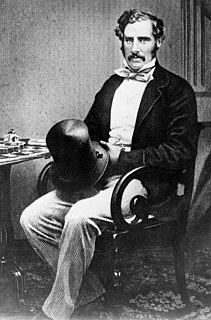A Quote by William Wilberforce
What should we suppose must naturally be the consequence of our carrying on a slave trade with Africa? With a country, vast in its extent, not utterly barbarous, but civilized in a very small degree? Does any one suppose a slave trade would help their civilization?
Related Quotes
After the Moslem Africans lost control over Spain, they began to prey on the Africans further to the south. They destroyed the great independent states in West Africa, and subsequently set Africa up for the Western slave trade and the Arabs were in the slave trade before Islam and they are still in the slave trade.
Decades from now, people will look back and wonder how societies could have acquiesced in a sex slave trade in the twenty-first century that is... bigger than the transatlantic slave trade was in the nineteenth. They will be perplexed that we shrugged as a lack of investment in maternal health caused half a million women to perish in childbirth each year.


































